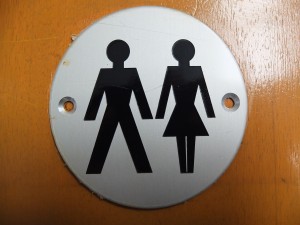 The more astute reader will probably have figured out by now that I work in a school (those who know me will, of course, be well aware of the fact). Now, this is not – it has to be said – just any school. It has a full scale IT Department for one thing (of which I am the director), which should give some idea as to the nature of the establishment. In addition to my managerial and technical duties I also teach drama. This rather unusual mixture is – it need hardly be said – the result of my somewhat eclectic background.
The more astute reader will probably have figured out by now that I work in a school (those who know me will, of course, be well aware of the fact). Now, this is not – it has to be said – just any school. It has a full scale IT Department for one thing (of which I am the director), which should give some idea as to the nature of the establishment. In addition to my managerial and technical duties I also teach drama. This rather unusual mixture is – it need hardly be said – the result of my somewhat eclectic background.
The other day I was talking to the School’s Librarian in the Common Room. She has two sub-librarians who are both also of the fairer sex, a situation apparently not uncommon in their profession. Standing nearby as we talked were two other women – one of our history teachers and a young American graduate who is in the UK for a year on one of the School’s fellowship programmes.
The Librarian and I were discussing the replacement of the software that runs the library catalogue, which upgrade is planned for later this year. I suggested that she and the other ‘ladies’ would know more once they had seen some of the potential alternative systems in action in other schools.
At this point the history teacher interrupted us, politely but firmly, to take me to task for what I had said. I was nonplussed – and expressed same. She explained that I should not have used the term – ‘ladies’. No more ‘plussed’ I inquired as to why this should be so – to be informed that the term is now considered pejorative.
Naturally I apologised for any offence that I might have caused, however inadvertently, and made clear that I had not intended to disparage or condescend in any way. Those who know me would hopefully agree that I have always behaved in the enlightened manner of what was once called the ‘new man’, and have the greatest respect for those of the opposite gender.
I explained that, for me, the terms ‘ladies’ and ‘gentlemen’ have altogether different meanings. I address my staff – who are predominantly male – as ‘gentlemen’ (that I do not do similarly for the sole woman on my team is because neither ‘ladies’ nor ‘gentlemen’ take the singular – at least not in England!), and I do likewise to the boys in my classes – this latter because my fervent hope is that, if they are not already young gentlemen, they will become so by the culmination of their education.
I am not sure that my protestations entirely convinced. I find it somewhat sad that terms that I have always considered a mark of respect should now have gained other connotations. Language is, of course, as much defined by the understanding of the listener as by the intent of the speaker, and it is incumbent on both parties jointly to achieve consensus as to meaning. I fear that all too often this part of the deal is neglected and offence given – or taken – where none is intended.
I would be most interested to hear others’ views on the matter.
I had subsequently an interesting conversation with the American fellow. She told me that she been made much more aware of issues related to sexism since coming to the UK than she had previously been in the US. She was somewhat taken aback by men performing what we might consider acts of politeness – holding doors open and so forth – but even more so that these same men were less able to accept similar in return. She described instances in which she had held open one half of double doors for a man, only to see him push through the other half for himself.
Bizarre!
Tags: Language
-
Hmm – there is nothing like a dame, as they say.
Well, I’m a lady, and perfectly happy to be called one – I didn’t know I was supposed to be insulted. My friends and I will address ourselves as ‘ladies’ (or ‘witches’, but that’s another story).
Perhaps the issue is not the word as much as the way it can be used, or the way it is heard. But if not ‘ladies’, then what? Wimmin? People? Oi you – sunshine?
I think I shall continue to be a lady – after all, I wear ladies things-
Ah yes, the “ladies” comment. Well, I use this term all the time and I’m in one of the colonies. Is it possible that I can because I am a woman??! This is absurdity in thinking, I believe. It is my belief that only those already hyper-sensitive to sexism perceive it in the thoughts, words and actions of others. The rest of us would take being called “ladies” as a sweet, kind way of being spoken to. As to the other conversation, I think that a man pushing through the opposite door when a door is being held open for him by a woman is either at the height of rudeness, or completely lost in his own world. (And yes, bizarre, as you put it!) Perhaps most men like this think “It is men who hold doors open for (ahem) ladies, so she cannot possibly be waiting for me, can she?”
Your blog always makes me smile!
x
-
Comments are now closed.


4 comments